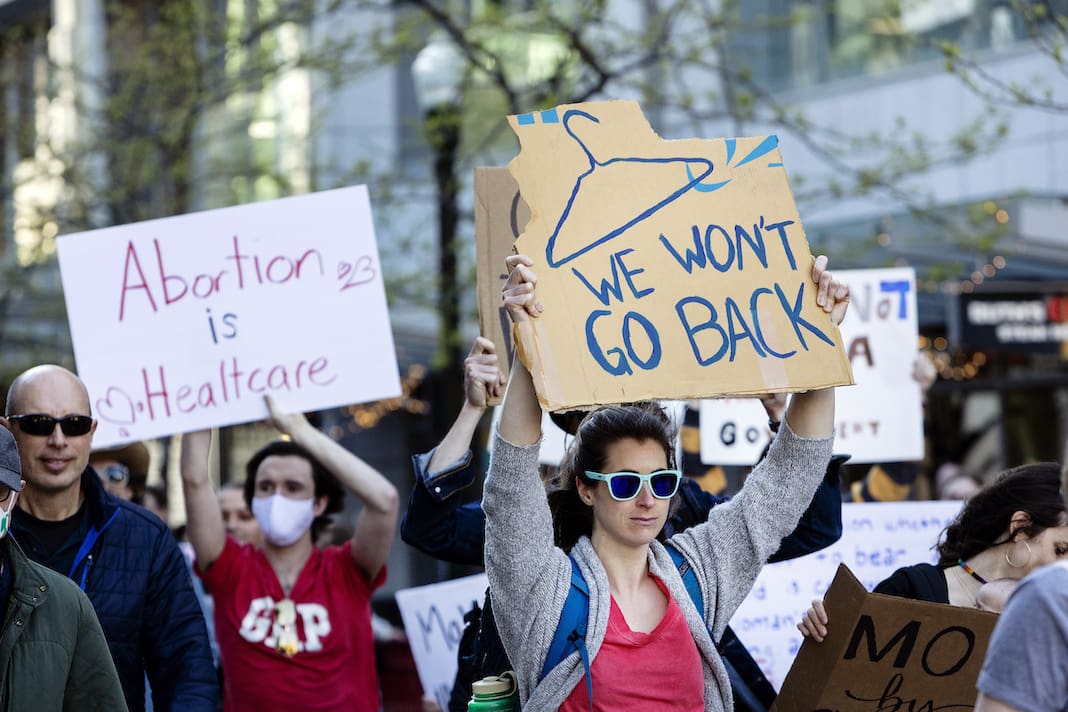Another study proves restricting abortions doesn't make people safer
Abortion restrictions are driving up health care costs — not making patients safer.

Beginning in the early 2000s, conservative legislators implemented hundreds of new abortion restrictions across the country. These effectively serve as obstacles for people seeking the procedure, even while proponents of the laws have claimed they were somehow in people’s best interest.
One type of restriction requires abortion providers to perform the procedure in settings that meet the functional requirements for ambulatory surgical centers, outpatient clinics that typically provide invasive procedures, such as a complex cataract surgery or a spinal injection. The Guttmacher Institute, which examines reproductive health care laws and policies, says that 17 states currently require abortion providers to meet these requirements.
Opponents of abortion rights argue the laws, which forced providers that couldn’t meet the requirements to stop offering the procedure, were designed to keep abortion patients safer. Abortion rights advocates, meanwhile, say the laws are meant to block people from accessing abortions outright.
Now, a new study shows abortions performed in a surgical center are much more expensive than those performed in an office setting, while not being any safer. And research shows those additional costs could prove to be prohibitive for some.
The study, published in the American Journal of Obstetrics and Gynecology, found that the average cost for an abortion in a surgical center was $772 more than the cost of the same procedure in an office setting. It also found there were no significant differences in the likelihood of needing follow-up care as the procedures in both settings were equally safe. This was the case for both first- and second-trimester abortions.
Increased costs can decrease access to abortion. Most people seeking an abortion have already experienced a nonabortion-related “disruptive event,” such as being unemployed or losing their home. Put another way, many people are on shaky financial footing before they need an expensive medical procedure.
Then they must try to raise money for their abortion. A review by the National Network of Abortion Funds of over 2,000 abortions performed between 2010 and 2014 found people typically raised less than one-quarter of the costs of their abortion.
Relatedly, a report by IBIS Reproductive Health found that “the search for financial resources to pay [out-of-pocket] costs can delay women from obtaining abortion care, forcing some women to have later abortions and increasing the costs and potential health risks of an unintended pregnancy.”
Sometimes, when abortion is unavailable in one’s home state, traveling to another state is an option. However, when the barrier in your home state is cost, traveling elsewhere doesn’t help. Out-of-state travel is expensive and can add additional costs, such as child care and missed days of work.
In the end, laws requiring people to receive more expensive abortions in more expensive settings do nothing to increase safety. In fact, they can even decrease it. As the American Medical Association and the American College of Obstetricians and Gynecologists argued in a court filing in 2014, the imposition of such requirements “instead jeopardizes women’s health by restricting access to abortion providers.”
Restricting that access can lead to greater costs, later abortions, and sometimes no abortion at all.
Published with permission of The American Independent Foundation.
Recommended

Ohio doctors fear effects of emergency abortion care case set to go before U.S. Supreme Court
A federal law that allows emergency departments to treat patients without regard to their ability to pay will be under U.S. Supreme Court scrutiny this week, and Ohio doctors are concerned about the case’s local impact on emergency abortion care.
By Susan Tebben, Ohio Capital Journal - April 23, 2024
Biden on abortion rights: President expects to give speech Tuesday on new Florida 6-week ban
‘Having the president of the United States speaking out loud and with confidence about abortion access is a great thing’
By Mitch Perry, Florida Phoenix - April 22, 2024
Group launches effort to explore ballot initiative restoring abortion access in Idaho
Organizers say fundraising begins now for inclusion on the 2026 ballot
By Kelcie Moseley-Morris, Idaho Capital Sun - April 19, 2024







































































